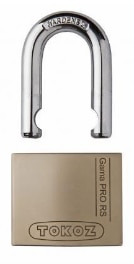Hi,
For one reason or another (elderly relative), I'm looking for a way to prevent operation of a mains appliance (about 6A at 230V AC) unless, say, a key of some sort is inserted, to prevent them from using the appliance themselves. It doesn't need to be a high-security solution, it could simply be a plastic key for instance, that could be pushed in and rotated, to enable the appliance.
I don't wish to cut holes in the appliance, and really do want to do this inline with the mains wire.
Is there any existing product that could do this? If not, is there any suggestion that I could fit into a small plastic enclosure myself? I don't have access to a 3D printer, so it ideally needs to be a solution that I could make using conventional tools (electric drill, saw, etc).
One way I can think of, is to find some sort of enclosure where a rocker switch could be fitted recessed, and then have a small padlock such that it prevents the switch from operating. But it probably requires a custom box : ( Another way could be to have a Bluetooth controlled relay. I could design this, but I'd rather find an off-the-shelf solution.
I'm sure I can't be the only one wanting to do such a thing, but I'm having no luck googling for this.
Anyone come across anything that could help?

